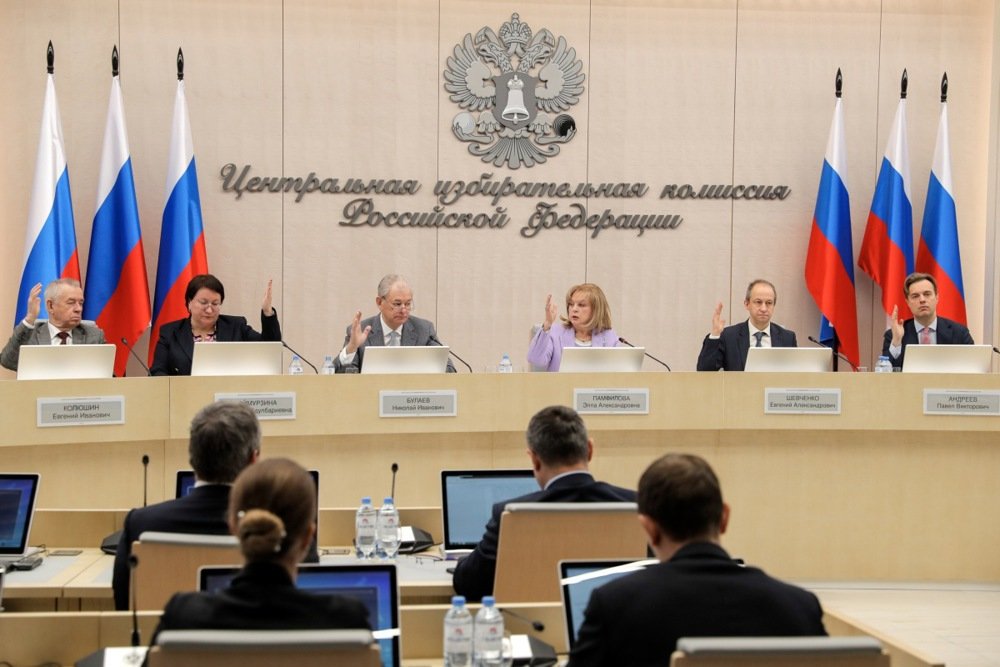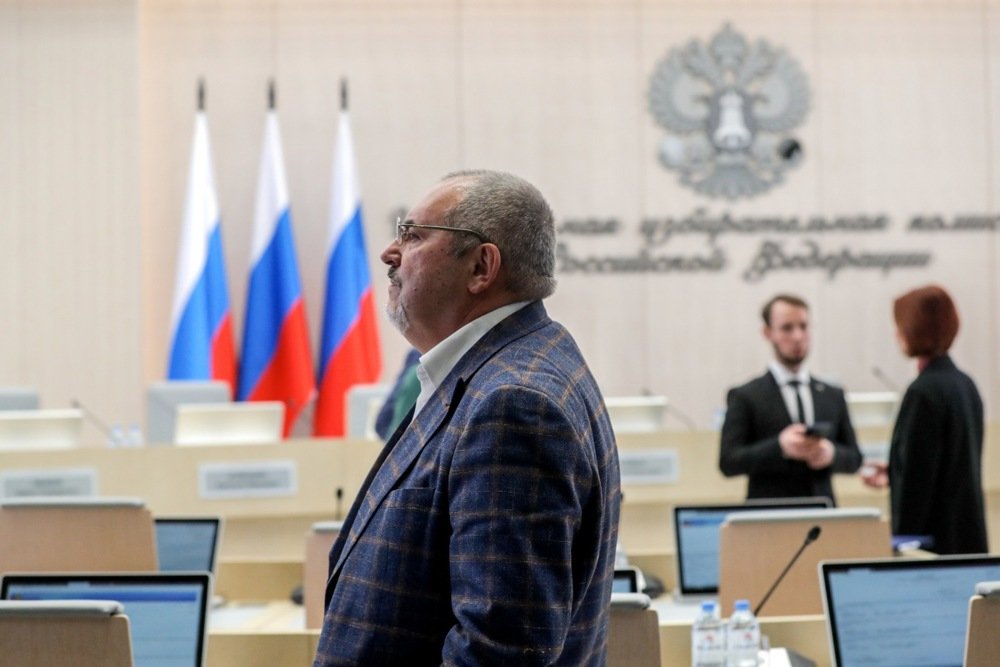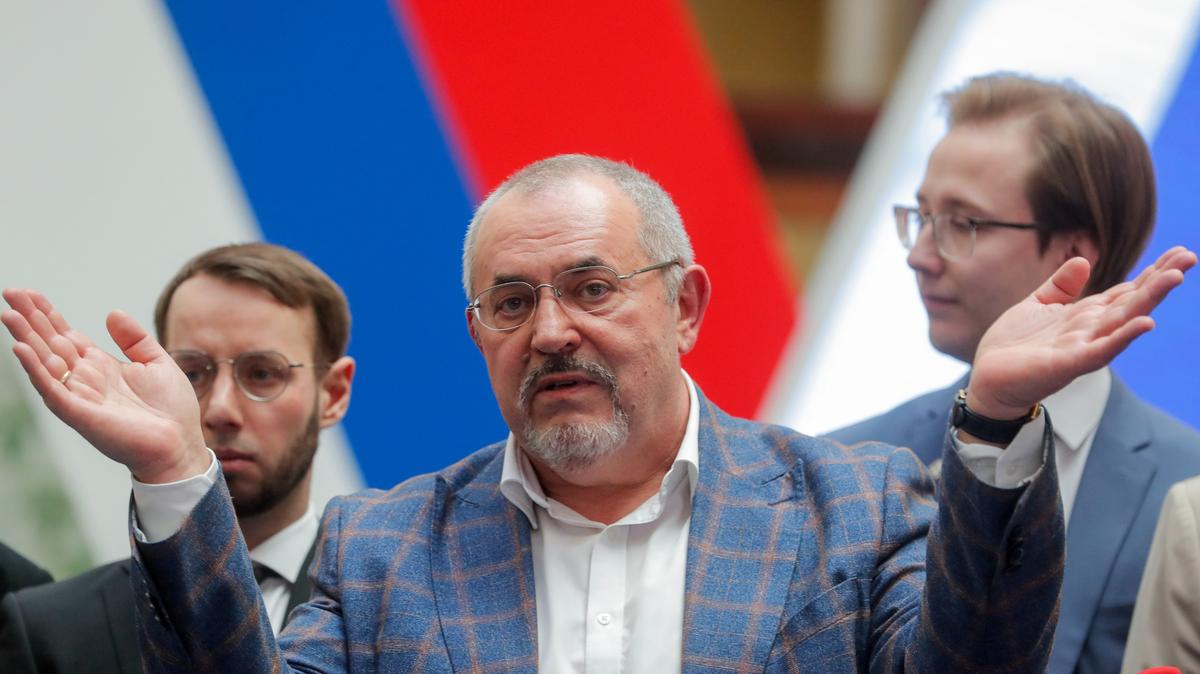Boris Nadezhdin, the sole anti-war nominee in the race to be Russian president, was barred from next month’s election on Thursday after the Central Election Commission (CEC) invalidated over 5% of the signatures he had collected in support of his candidacy.
While Nadezhdin announced his intention to appeal the decision at the Supreme Court, it is highly unlikely he will get a ruling in his favour. Still, his political career may not be over — after rejecting his candidacy on Thursday, CEC head Ella Pamfilova cheerfully recommended that Nadezhdin set up his own party, since, in her view, he had “good political prospects”. “We love you!” Pamfilova added.
Novaya Europe reported Tuesday on the mistakes the CEC found when digitising the signatures collected in support of the Nadezhdin campaign. Roman Udot, co-chairman of Golos, which works for the protection of voter rights, said mistakes could have been made during the digitisation of data by the CEC, with typos appearing in names, addresses and dates of birth.
On Tuesday evening, the Nadezhdin team reported that it had defended “several dozen” signatures in support of his nomination. As Nadezhdin told independent media outlet Agentstvo that same day, these were “obvious errors” made while digitising the names.
As a result of Thursday’s decision, four candidates will now be on the ballot: incumbent Vladimir Putin, the Communist Party candidate Nikolay Kharitonov (CPRF), the ultranationalist Liberal Democratic Party (LDPR) candidate Leonid Slutsky and Vyacheslav Davankov of the New People party.
‘The election should be all about Putin’
The fact that Nadezhdin was not allowed to run was to be expected, political scientist Fyodor Krasheninnikov told Novaya Europe.
“The only way Nadezhdin could have appeared on the ballot was if Putin himself wanted him there. But why would Putin want such a candidate, especially now that there was some buzz around Nadezhdin in émigré and opposition circles?” Krasheninnikov said.
Once Nadezhdin had secured the protest vote, he quickly became an “unacceptable rival” to Putin, political analyst Dmitry Oreshkin added.

The Central Election Commission voting to deny registration to Nadezhdin on Thursday. Photo: EPA-EFE/MAXIM SHIPENKOV
Krasheninnikov thinks that while Nadezhdin was unknown and unpopular, he still had a theoretical chance of standing in the election, but as soon as he began to garner support in Russia and abroad, Putin saw him as toxic. Krasheninnikov emphasised that the decision to register a candidate is entirely down to the Kremlin and Putin personally.
He added that Nadezhdin’s plan to challenge the CEC decision in court is the safest strategy for him, saying he can do so “in a protracted and thorough way”. However, Russian courts are toothless when it comes to fighting the authorities and the president, and any court will support the CEC decision.
Krasheninnikov believes that should Nadezhdin call for protests and they come to pass, the authorities will react very differently. “I think he has been warned not to organise any demonstrations. The authorities know just how to deal with unrest: disperse the crowd and then put people in jail.” Should that happen, Nadezhdin could easily be declared both an “extremist” and “foreign agent”. Oreshkin also believes that there is little point in street protests, since they are likely to be broken up.
That said, Krasheninnikov stressed that Nadezhdin’s presidential campaign had been far from pointless. “People lined up around the world for themselves, not Nadezhdin. Nadezhdin has his own interests, and has been in the system for a long time. But the fact that people found a way … to organise and perform some kind of collective activity is in itself invaluable.”
“Given how little opportunity there is in Russia to do anything in public without ending up in prison, the campaigns of Yekaterina Duntsova and Nadezhdin were, for many, an outlet and an opportunity to put on the record that they were not for Putin,”
Krasheninnikov added.
Oreshkin told Novaya Europe that Nadezhdin would have received too many votes, going against the rules set out by the Presidential Administration (PA). “The election should be all about Putin, with a few insignificant figures. But this time there was some suspense and that’s still the case, as there’s a chance Nadezhdin’s team included people who worked for the other side,” Oreshkin said.
The PA’s Trojan horse
In a Novaya Europe story about the Nadezhdin campaign published on Monday, sources said that two separate teams had coordinated the collection of signatures for Nadezhdin: one from the Civic Initiative party, the other made up of independent volunteers, an arrangement that led to them acting at cross-purposes.
Nadezhdin’s press service said that the teams had collected more than 211,000 signatures, and selected the best of them. Andrey Nechaev, the Chairman of Civic Initiative, called the Novaya Europe piece “outright lies”. The editorial staff defended it Thursday.
After the CEC meeting on Thursday, Nadezhdin confirmed some of the information published in the Novaya Europe piece. He said that there were indeed disagreements among his staff and members of the different teams working to support him did not know about each other, chiefly for security purposes.

Photo: EPA-EFE/MAXIM SHIPENKOV
“According to one scenario, the PA would get Nadezhdin, who was unpopular and little known, all the signatures he needed via Civic Initiative,” Krasheninnikov says. But after the candidate began to gain some traction, Civic Initiative acted as the PA’s Trojan horse. “Even if their volunteers collected perfect, pristine signatures, the PA would always be able to throw in some obviously bad signatures. They could have planted a bomb. That’s one well-known, long-established dirty trick,” Krasheninnikov said.
Oreshkin says the presidential race is now developing in a way the authorities would want it to. “The democratically minded will want to know whether Nadezhdin was just a stooge from the beginning or was played for a fool. But this is all an attempt to distract from the fact that Nadezhdin had become a focal point for people’s hopes and someone around whom the spirit of protest could unite. That is why the authorities now need to discredit him and strike a blow to the liberal public’s belief system,” he concluded.
Join us in rebuilding Novaya Gazeta Europe
The Russian government has banned independent media. We were forced to leave our country in order to keep doing our job, telling our readers about what is going on Russia, Ukraine and Europe.
We will continue fighting against warfare and dictatorship. We believe that freedom of speech is the most efficient antidote against tyranny. Support us financially to help us fight for peace and freedom.
By clicking the Support button, you agree to the processing of your personal data.
To cancel a regular donation, please write to [email protected]

